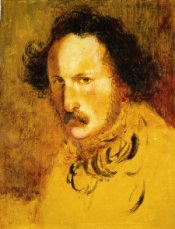Recently in Repertoire
Mozart and Salieri, an opera in one act consisting of two scenes.
Nicolai Rimsky-Korsakov (1844-1908), composer. Libretto derived from Alexander Puskhin's play of the same name.
First performance: 7 December 1898 in Moscow.
Ariadne auf Naxos, Oper with a prologue and one act.
Music composed by Richard Strauss. Libretto by Hugo von Hofmannsthal.
La Vestale, a tragédie lyrique in three acts.
Boris Godunov, an opera in four acts with prologue
Modest Mussorgsky, composer. Libretto by the composer, based on Alexander Pushkin's drama Boris Godunov and Nikolai Karamazin's History of the Russian Empire
First performance: 8 February 1874 at the Mariinsky Theatre, St. Petersburg
Il Trovatore, dramma in four parts.
Only a few months following the premiere of Der Rosenkavalier, Hugo von Hofmannsthal proposed a new opera to Richard Strauss based on Molière’s comedy-ballet, Le Bourgeois gentilhomme (in German, Der Bürger als Edelmann).
Die Entführung aus dem Serail, Singspiel in 3 Acts.
Music composed by Wolfgang Amadeus Mozart (1756–1791). Libretto by Johann Gottlieb Stephanie the Younger, based on an earlier libretto by
Christoph Friedrich Bretzner.
Die Entführung aus dem Serail, Singspiel in 3 Acts.
Music composed by Wolfgang Amadeus Mozart (1756–1791). Libretto by Johann Gottlieb Stephanie the Younger, based on an earlier libretto by
Christoph Friedrich Bretzner.
Arabella: Lyrische Komödie in three acts
Die Entführung aus dem Serail, Singspiel in 3 Acts.
Music composed by Wolfgang Amadeus Mozart (1756–1791). Libretto by Johann Gottlieb Stephanie the Younger, based on an earlier libretto by
Christoph Friedrich Bretzner.
La Gioconda, dramma lirico in four acts.
Music composed by Amilcare Ponchielli (1834–1886). Libretto by Arrigo Boito (under the pseudonym Tobia Gorrio), based upon Victor Hugo's Angelo, Tyrant of Padua (1835).
Don Carlo, an opera in four acts. Music composed by Giuseppe Verdi (1813–1901). Libretto by Joseph Méry and Camille Du Locle after Friedrich von Schiller’s dramatic poem Don Carlos, Infant von Spanien. Revised version in four acts (French text revised by Du Locle, Italian translation by Achille de Lauzières and Angelo Zanardini).
Un ballo in maschera, a melodramma in three acts.
Music composed by Giuseppe Verdi. Libretto by Antonio Somma, based upon the work of Eugène Scribe Gustave III ou Le bal masqué (1833)
Medea: Melodramma tragico in three acts.
Die Tote Stadt, an opera in three acts.
Music composed by Erich Wolfgang Korngold (1897-1957). Libretto by Paul Schott (Julius and E. W. Korngold) after the novel Bruges la morte by Georges Rodenbach.
Some Details concerning the Revolution inaugurated by Rossini
Manon Lescaut, dramma lirico in quattro atti
Elektra: Tragedy in one act.
Lyric Opera of Chicago has announced both schedules and cast-lists for is Spring 2020 performances of Richard Wagner’s Ring Cycle. Given the series of individual productions already staged by the company since Fall 2016, that pave the way for the complete cycle, Lyric Opera of Chicago’s complete production should affirm the artistic might of the great composer.
“Diacono himself does not know what musical talent he possesses” – Mascagni
Repertoire

23 Mar 2006
DONIZETTI: Don Pasquale
Don Pasquale, Dramma buffo in three acts.
Music by Gaetano Donizetti. Libretto by Giovanni Ruffini and the
composer after Angelo Anelli’s libretto for Stefano Pavesi’s Ser
Marcantonio (1810), which was derived from Epicœne or The
Silent Woman by Ben Jonson (1609).
First Performance: 3 January 1843 at Théâtre
Italien, Paris.
Principal Characters:
|
Don Pasquale, an elderly bachelor
|
Bass
|
|
Dr. Malatesta, his physician
|
Baritone
|
|
Ernesto, his nephew
|
Tenor
|
|
Norina (Sofronia), a youthful widow and Ernesto’s beloved
|
Soprano
|
|
A Notary, Malatesta’s cousin, Carlino
|
Bass
|
Time and Place: Mid-19th Century Rome at Don Pasquale’s villa and adjacent garden.
Synopsis:
Act I
Don Pasquale is an elderly and rich landowner. His nephew, Ernesto, will
be his heir, if he marries a woman chosen by Don Pasquale. But Ernesto loves Norina, a
young, attractive and vivacious widow, who is anything but rich. Ernesto refuses to obey
to his uncle, who decides to disinherit him and to find a wife for himself so that he
may sire an heir. Doctor Malatesta, Don Pasquale's friend, devises a plan to help the
two young people. He suggests to Don Pasquale his sister, Sofronia, as a wife,
expounding upon her dowry. Don Pasquale is elated and immediately ejects Ernesto from
his house. Meanwhile, Malatesta instructs Norina to impersonate Sofronia and to marry
Don Pasquale in a mock wedding ceremony. She is then to turn into a virago, thereby
reducing Don Pasquale to desperation.
Act II
Ernesto, unaware of the plan of Malatesta, is desperate. He resolves to
leave for foreign parts. Malatesta and Norina (wearing a veil to disguise herself as
Sofronia) arrive. Don Pasquale is immediately enamored, which only increases when she
lifts the veil. They sign a marriage contract before Malatesta's cousin posing as a
notary. The agreement gives her half of Don Pasquale's possessions. Ernesto arrives and
is appalled; but, Malatesta draws him aside and explains things. Sofronia, until then
timid and docile, changes her behavior. She becomes arrogant and temperamental; and, she
orders extravagant expenditures that terrorize Don Pasquale.
Act III
Sofronia increases her tantrums. When she slaps Don Pasquale, he demands
a divorce. She then connives to make him believe she has a lover. Exasperated, Don
Pasquale asks Malatesta to help him. Malatesta puts his scheme to Ernesto, who is to
pose as the lover of Sofronia. That evening in Don Pasquale's garden, Ernesto arrives
and sings a serenade to Sofronia. They then both sing a love duet. Seeing this from a
distance, Don Pasquale erupts. At the suggestion of Malatesta, he declares that Ernesto
will marry Norina, who will thereupon become the mistress of the household. Don Pasquale
is convinced by Malatesta that this will result in Sofronia leaving his household. At
this point, the plot is revealed. Relieved that he is not married to the diabolical
Sofronia, Don Pasquale forgives all and consents to the marriage of Ernesto and Norina.
Click here for the complete libretto.
